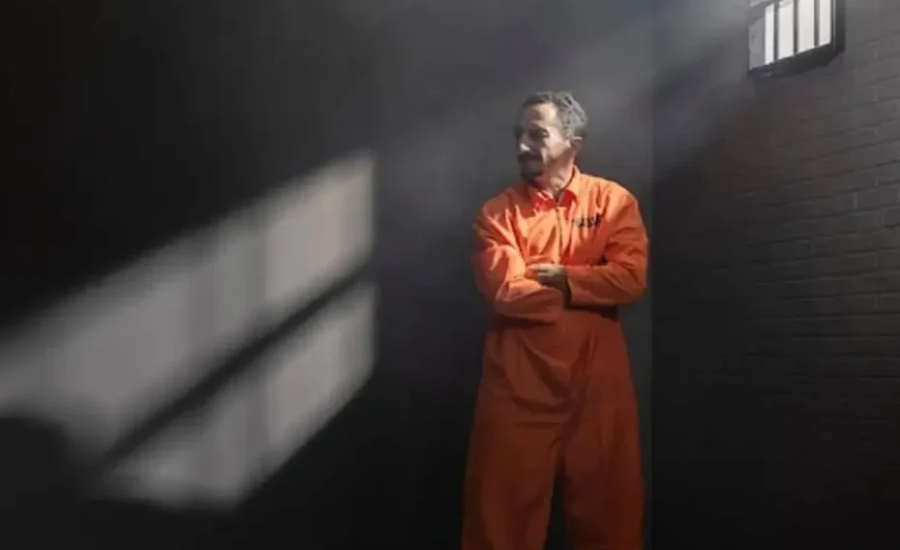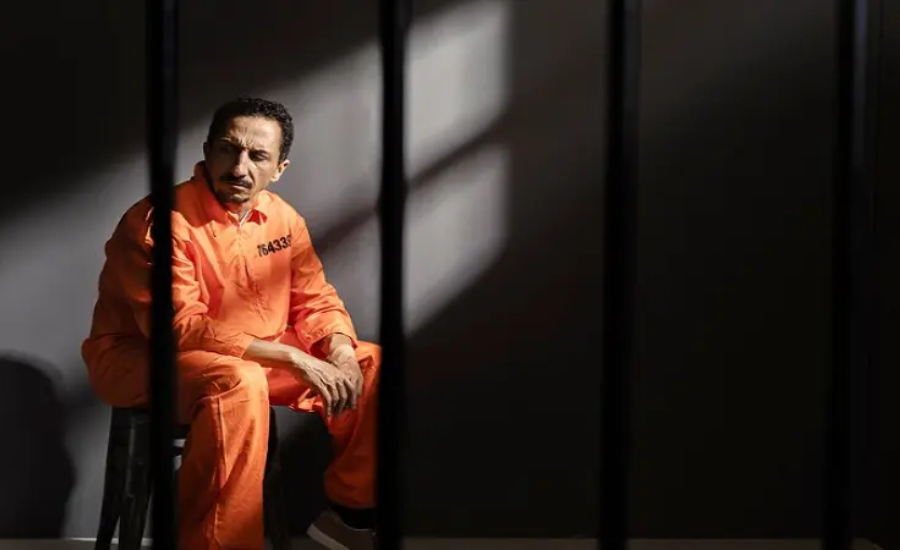Introduction OF Kankakee Mugshots Zone
The Kankakee Mugshots Zone is a public record resource that allows residents of Kankakee and surrounding areas to access mugshots and arrest information. Established to meet growing demands for transparency in law enforcement, this zone offers a straightforward way for community members to stay informed about criminal activity nearby. With the goal of fostering public awareness and enhancing safety, the Kankakee Mugshots Zone serves as a digital archive where users can view recent arrests, complete with associated charges and booking details.
How Mugshots Become Public From Arrest to Database?

The Kankakee Mugshots Zone represents an important segment of public records, making law enforcement information such as mugshots and arrest details accessible to residents. As demand for transparency in policing and criminal justice continues to rise, this resource offers Kankakee community members insight into local law enforcement activities and allows them to remain informed about crimes occurring in their area. By publicly sharing this data, the Kankakee Mugshots Zone aims to promote safety, awareness, and a sense of accountability in the local community.Mugshots, taken by law enforcement at the time of an individual’s arrest, capture physical details of the arrestee and are often paired with other public data, such as the charges, booking date, and previous criminal history if applicable.
Benefits Of The Kankakee Mugshots Zone
Public Safety and Community Awareness
One of the main advantages of the Kankakee Mugshots Zone is its contribution to public safety. By making arrest information readily available, it helps residents stay aware of criminal activity in their area, enabling them to take necessary precautions. This accessibility also fosters trust in local law enforcement by showing a transparent approach to handling crime. Informed communities tend to be more vigilant, creating a collaborative atmosphere that prioritizes safety.
Addressing Misconceptions About Mugshots & Crime
Mugshots often carry a stigma, leading many to assume that those featured are guilty or have been convicted of serious crimes. However, mugshots only signify that an arrest has been made, not that a person has been found guilty. The Kankakee Mugshots Zone includes individuals at different stages of the legal process, some of whom may later be cleared of charges. Understanding this distinction is essential for reducing unfair bias and fostering a more supportive community.
Social Impacts
The Consequences of Public Mugshots on Individuals
The public availability of mugshots can have lasting consequences for individuals, affecting everything from job prospects to personal relationships. Those featured on the Kankakee Mugshots Zone often face stigmatization, which can impact their ability to reintegrate into society—even if they have not been convicted. This social stigma can perpetuate cycles of poverty and isolation, making it harder for individuals to move forward.
The Role Of Mugshots In Kankakee’s Perceptions of Crime
The visibility of mugshots in Kankakee’s community has a notable impact on local attitudes toward crime and safety. Seeing regular updates on recent arrests can sometimes amplify a fear of crime, with residents associating these public records with an increase in local crime rates, even if the actual statistics tell a different story. As a result, having mugshots widely accessible can lead to distorted perceptions, potentially heightening concerns about neighborhood safety or even misrepresenting the community’s reality.On a personal level, the public availability of mugshots can create a long-lasting stigma for individuals included in the Kankakee Mugshots Zone, often well beyond any legal penalties they may have already served.
The Influence Of Technology On Mugshot Visibility
The rapid development of digital platforms has significantly increased the visibility of mugshots, with online databases archiving public records indefinitely. As technology advances, the accessibility of these records is expected to grow, raising further concerns about privacy and the potential for misuse. This shift highlights the need for updated regulations to prevent the spread of outdated or misleading information and protect individuals from unwarranted scrutiny.
Mugshot Removal Services
Ethical & Legal Dilemmas
Some websites that post mugshots charge fees for image removal, often leaving individuals with no option but to pay to clear their records online. This practice has sparked ethical debates, with critics arguing that profiting from arrest records is exploitative. The legal standing of such businesses is also under scrutiny, as some jurisdictions consider regulating or banning pay-to-remove services altogether.
The Impact of Public Mugshots on Community Trust
The Kankakee Mugshots Zone plays a significant role in shaping community perceptions of safety and law enforcement. While some residents appreciate the transparency, others worry that it fuels a sense of fear or distrust. Open discussions about the purpose and use of public mugshots can help bridge these divides, fostering an environment where residents feel secure while also trusting the intentions behind law enforcement transparency.
Future Directions For The Kankakee Mugshots Zone

As societal attitudes toward privacy evolve, the Kankakee Mugshots Zone may undergo changes to address concerns around public access to arrest records. Community feedback, technological advances, and privacy advocacy are likely to influence the Zone’s future. Law enforcement agencies may adopt policies that strike a balance between public information and individual dignity, paving the way for a more nuanced approach to criminal justice transparency.
Encouraging Constructive Community Dialogue
Bringing residents together for discussions about the Kankakee Mugshots Zone can help foster a deeper understanding of both its benefits and its challenges. Community forums, workshops, and outreach programs offer opportunities for residents to voice their concerns, learn more about the implications of public records, and explore ways to support rehabilitation and reintegration.
Legal & Ethical Considerations In The Kankakee Mugshots Zone
The public distribution of mugshots in the Kankakee Mugshots Zone raises several legal and ethical questions, especially concerning privacy rights, freedom of information, and the potential for personal harm. In Kankakee, as in many other areas, mugshots are treated as public records, accessible through law enforcement agencies and online databases. However, while this public access serves transparency, it also introduces complications around privacy and the long-term effects of having one’s arrest image widely available.A key issue is that many individuals find their mugshots posted on third-party websites specializing in arrest records. These sites often keep mugshots online indefinitely, which can lead to defamation, emotional distress, and damaged reputations—even for those never convicted of a crime.
The Future Of The Kankakee Mugshots Zone
As technology advances and public opinion evolves, the Kankakee Mugshots Zone is likely to undergo changes, with potential shifts in both policy and community engagement. With more online platforms hosting public records, access to mugshots and arrest information is expected to increase, prompting the Kankakee community to consider the ethical implications of such visibility and the lasting impact on individuals’ lives.The community’s perspective on privacy rights is also shifting. As residents become more informed about the lasting effects of public records, there may be an increasing demand for record removal options or privacy safeguards that prevent lifelong consequences from temporary legal issues. Law enforcement agencies may, in turn, adopt stricter guidelines for sharing mugshots, ensuring that the public interest is prioritized over sensationalism and public shaming.
Privacy Concerns & The Ethics Of Mugshot Accessibility
The Kankakee Mugshots Zone represents an intersection between transparency, community safety, and personal privacy. As awareness grows about the potential for lasting harm from public records, the Kankakee community may see a movement toward a more supportive and balanced approach to criminal justice and public information sharing. Through collective effort, Kankakee can foster a more just, informed, and engaged community that prioritizes both accountability and empathy.
Facts About The Kankakee Mugshots Zone
- Community Awareness Tool: The Kankakee Mugshots Zone was initially created to improve community awareness by giving residents easy access to local arrest information.
- Transparency in Action: Mugshots are not just photos; they’re part of a larger legal transparency effort, allowing citizens to see law enforcement’s response to crime.
- High Demand for Information: Since it was introduced, the Kankakee Mugshots Zone has seen a significant increase in views, reflecting the community’s interest in staying informed.
- Not Just for Convicts: Many people don’t realize that mugshots include all arrests, not just those that lead to convictions—meaning some individuals may be listed even if their charges were dropped.
- Digital Advocacy: Kankakee has seen a rise in advocacy groups dedicated to educating residents on interpreting mugshot records critically, especially to avoid snap judgments.
- Mugshot Removal Services: Some third-party sites charge people to remove their mugshots, sparking debates about whether it’s ethical to profit from public records.
FAQs About The Kankakee Mugshots Zone
Q. Why are mugshots made public in the Kankakee Mugshots Zone?
A: Mugshots are part of public records and are accessible to promote transparency, keeping residents informed about local law enforcement activities and ensuring accountability.
Q. How does the Kankakee Mugshots Zone impact those arrested?
A: While intended to inform, public mugshots can lead to stigma, even if charges are dropped. This can affect individuals’ employment and social relationships and often leads to difficulties in reintegration.
Q. Are all arrests listed on the Kankakee Mugshots Zone?
A: Yes, the Kankakee Mugshots Zone generally includes records of all arrests, regardless of whether they lead to a conviction or if charges are dropped.
Q. Can individuals remove their mugshots from public records?
A: In most cases, mugshots in public databases cannot be removed without legal changes. However, some websites do offer removal services for a fee, though this has ethical and legal implications.
Q. Are there any legal changes proposed regarding mugshot accessibility?
A: Yes, there are growing discussions among lawmakers to limit access to mugshots for non-convictions or allow removal upon case dismissal. Privacy advocates are pushing for reforms to better balance transparency with personal privacy.
Conclusion
The Kankakee Mugshots Zone stands at the intersection of community safety, transparency, and personal privacy. By providing public access to arrest records, it serves as a resource for residents to stay informed and feel secure. However, this access also presents challenges, especially in how it impacts those whose mugshots are shared, often leading to long-term stigma and potential barriers to rehabilitation. As society’s views on privacy and transparency evolve, the future of the Kankakee Mugshots Zone may include reforms aimed at balancing these concerns more fairly.
Timely information delivered directly to your inbox or feed. Chicago Daily





